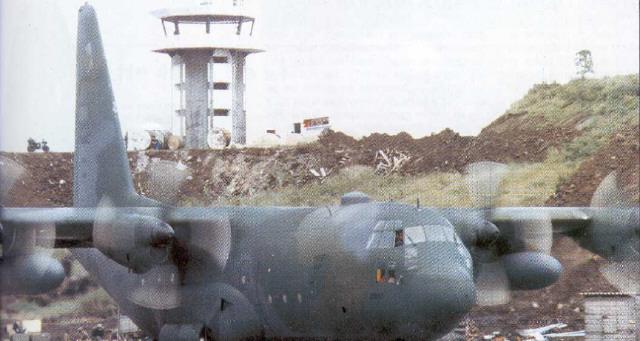On October 25, 1983, the United States invaded Grenada and launched a joint naval and air operation against Grenada, which made the world aware of this small country.

Grenada, located at the southernmost tip of the windward archipelago in the eastern part of the Caribbean Sea, borders the Caribbean Sea to the west, the Atlantic Ocean to the east, Venezuela, Trinidad and Tobago to the south, and Barbados to the east, which guards the gateway of the Caribbean Sea to and from the Atlantic Ocean.
Grenada, with a land area of only 344 square kilometers, is composed of the main island of Grenada, Cariacu Island, and Little Martinique. Less than 1/3 of Hong Kong's area, a real small country.
Grenada has a population of only 113,000 in 2020, equivalent to 1/70 of Hong Kong's population. Blacks make up about 82 percent, mestizos 13 percent, and whites and others 5 percent.
Grenada, before independence, was repeatedly occupied by Britain and France.
It belonged to France in 1650 and was occupied by the British in 1762. In 1763 france transferred the grid to britain, and in 1779 it was reoccupied by the French. In 1783, it was officially recognized as British ownership under the Treaty of Versailles, and it has since become a British colony. Independence was not until 7 February 1974.
Grenada, after independence, was also ill-fated and turbulent.
In 1979, the New Gem Movement staged a military coup d'état and established a people's revolutionary government, with Bishop as prime minister. In October 1983, Deputy Prime Minister Corde and others staged a coup d'état and killed Prime Minister Bishop and others. On October 25, 1983, the United States invaded Grenada. Elections were only resumed in 1984.
The United States invaded Grenada
Grenada came close to becoming the "second socialist Cuba." After the establishment of the Bishop government, it pursued a policy of "one-sidedness" toward the Soviet Union and Cuba in diplomacy. Received a large amount of economic and military assistance from the Soviet Union and Cuba, and formed the "People's Revolutionary Army" and militia.
Grenada, which joined the Commonwealth in 1974, is a member of the Commonwealth. So the U.S. invasion of Grenada in 1983, ignoring British advice in advance, was tantamount to punching Margaret Thatcher in the face.
In conjunction with the United States invasion of Grenada, six Caribbean countries, including Barbados, Jamaica, Saint Vincent, Saint Lucia, Dominica and Antigua and Barbuda, also sent 396 contingents to cooperate with the United States Forces (Caribbean Peace Force). It's a bit of a dog's leg.
Influenced by the U.S. occupation of Grenada in 1983, Granada had no army, only about 900 police officers.
Granada countries, the main economic income is dominated by tourism and agriculture, of which nutmeg spice exports account for one-third of the world,after Indonesia ranks second in the world.
Granada GDP 2020: $1.07 billion, GDP per capita: $9,820.
The currency is the East Caribbean Dollar, which is the currency of several former British colonial countries in the Caribbean region of North America and the British colonies. (1 East Caribbean Dollar = 2.3989 Chinese Yuan)
Granada, the ordinary passport of Chinese citizens does not exceed 30 days visa-free, but the vast majority of granada's materials rely on imports, and the price is very high, equivalent to 5-10 times the price of Chinese goods.
Granada, the country is divided into 6 districts and Carrieac Island, Petit Martinique. The six districts are St. Mark's, St. Patrick's, St. John's, St. Andrew's, St. George's, and St. David's.
The capital, St. George's, with a population of about 10,000 people, is located in the St. George's district at the southwestern tip of the main island and is both the administrative center of Grenada, as well as the economic center and transportation hub.